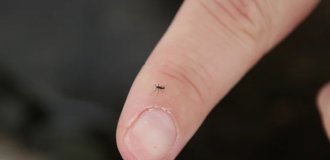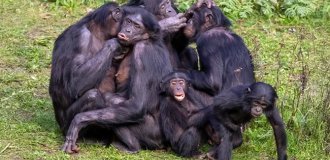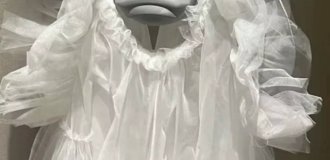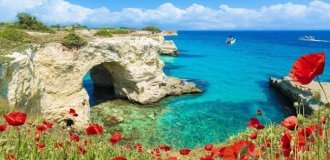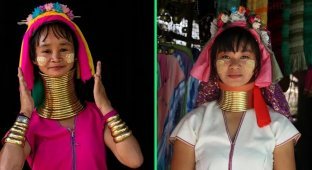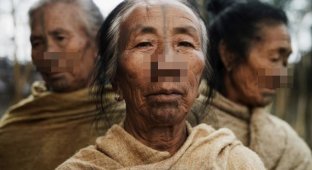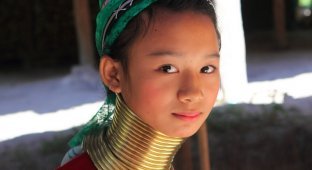The most beautiful women in Africa who never wash (8 photos)
Photos of representatives of the Himba people have long been available on various Internet resources; they are even used for calendars, computer screensavers, and posters. It is noteworthy that these beauties never wash, but at the same time their skin glows and a pleasant aroma always emanates from them. 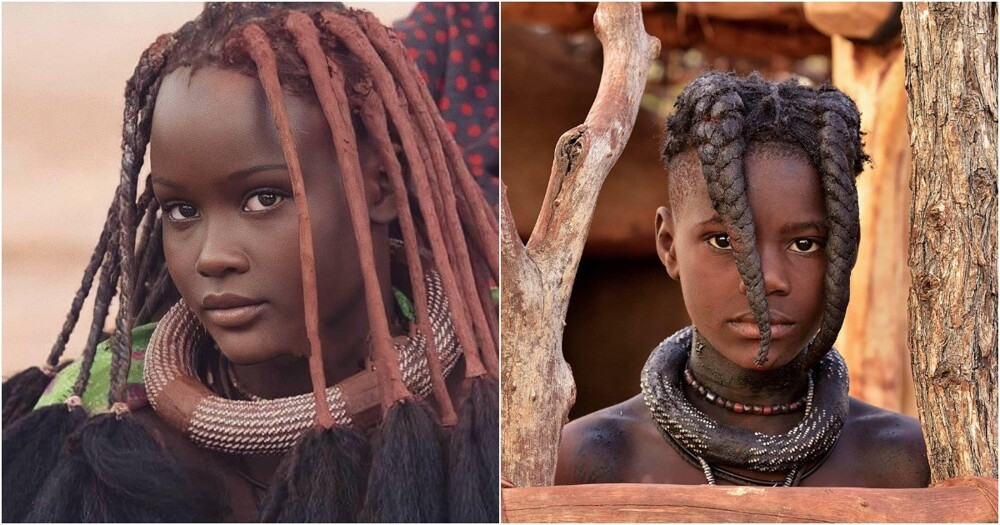
The semi-nomadic Himba people live in northern Namibia. Their houses are made of wood and clay, they raise sheep, cows and goats, and it is difficult to take your eyes off the girls of this tribe: their hairstyles are always unusually skillful, their arms and legs are always framed by bracelets, and there are several rows of beads on their necks. But the most remarkable thing is its appearance: real, wild and somehow pristine, untouched by civilization. The girls seem to be made for the covers of fashion magazines: high cheekbones, elegance, almond-shaped eyes. 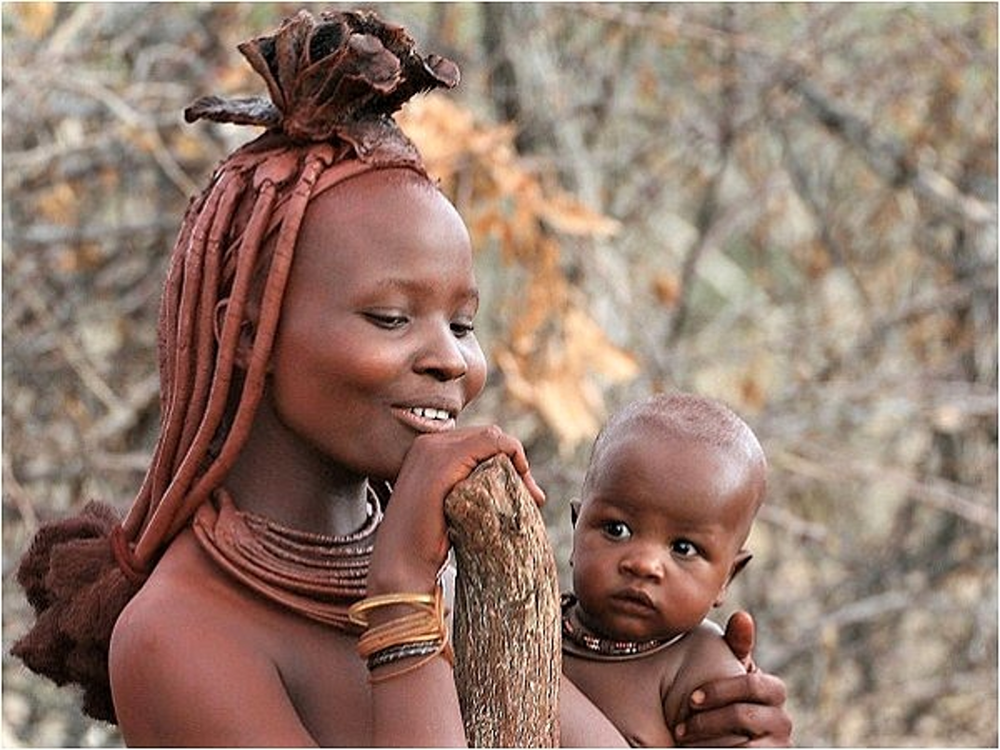
Himba girls get married as soon as they reach puberty. While girls are young, they wear two braids, but women decorate their heads with erembe - a sheepskin headdress and braid their hair in many braids, similar to dreadlocks. They are lubricated with a paste, which not only helps to hold the hairstyle, but also colors the hair.
Men and women wear skirts made of calfskin and sometimes cloth, because they are not completely separated from civilization. There is usually nothing on the upper body except beads and small pieces of animal skin. A woman who has given birth often wears a small backpack, sewn with her own hands. 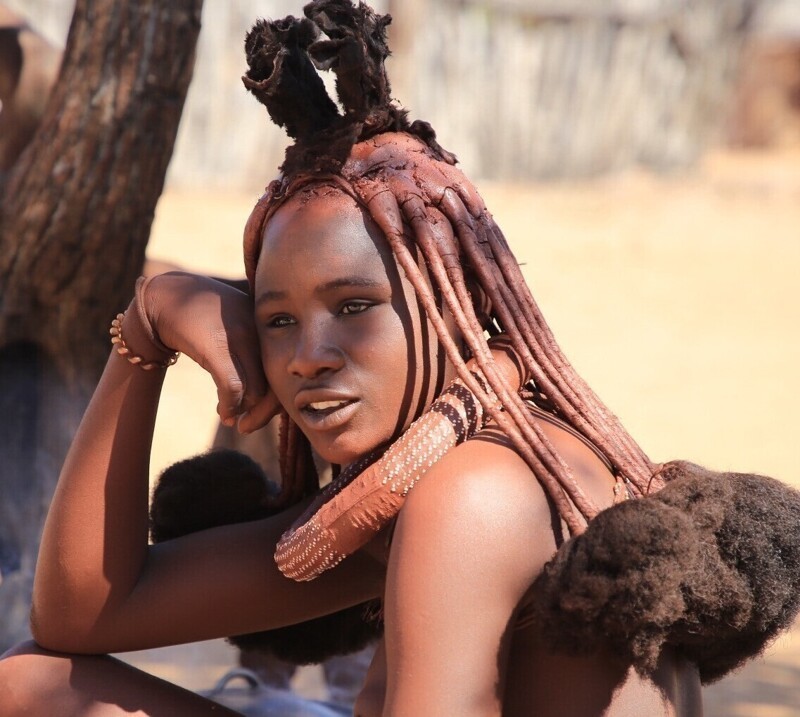
Himba girls do not walk barefoot; they wear sandals made of cow leather on their graceful feet, but men walk either barefoot or in sandals made from tires. Men, in addition to any advice from the leaders, usually graze skinny cows and slaughter them as needed. If necessary, they go hunting, and they can, if they want, dismantle and reassemble the huts when the village decides to change their location. That's all the responsibilities, by and large. Unlike the amount of work the female half of the tribe has to do. 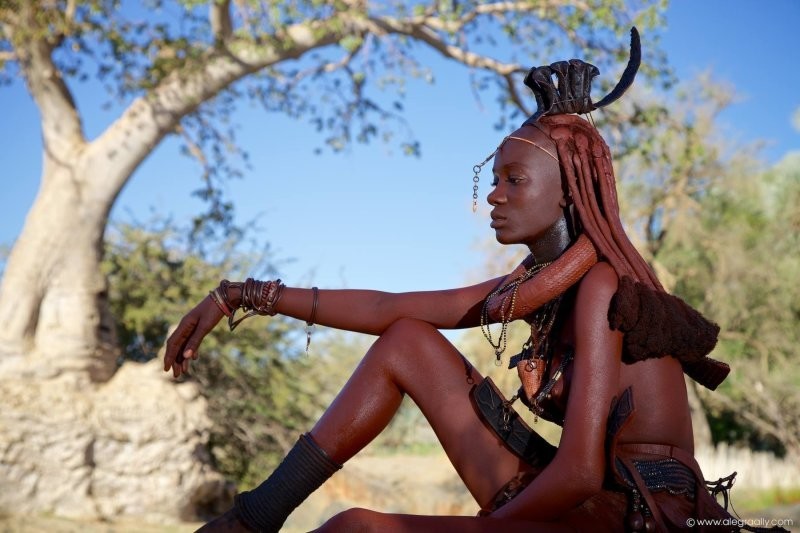
They prepare food, bring water to the village, take care of the vineyards, collect grains, fruits, herbs, take care of livestock, plaster the house from a mixture of manure and clay (and if necessary, they can put up a wooden frame themselves). Well, and the responsibilities of a mother, of course. Himba children, by the way, are raised collectively; there is no difference - one’s own or someone else’s, as long as the tribe has fairly free morals regarding marital fidelity. 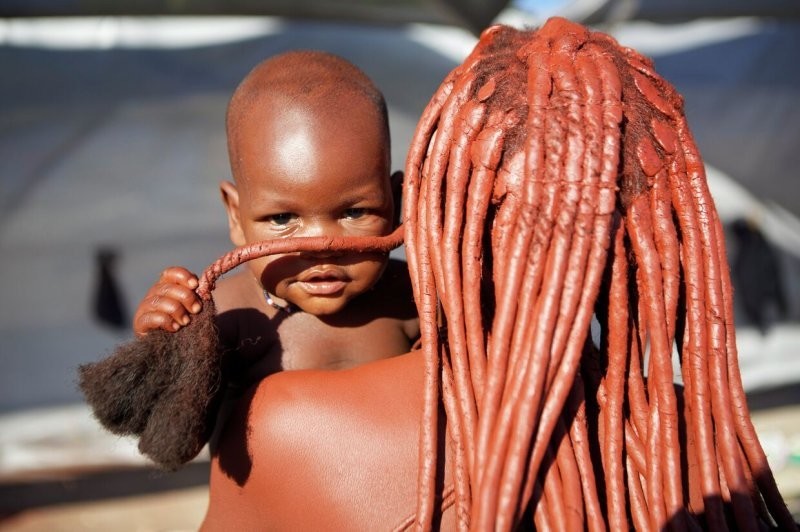
The Himba people practice polygamy. A man can take two wives at the same time and usually the girls are handed over to their husband without their consent - all issues are decided by their father, including choosing the groom. A girl can be married off at a very young age: some brides are not even twelve years old. In fact, in Namibia such young marriages are prohibited by law, but the Himba ignored this rule for a long time. And only recently in some villages they revised the age of marriage, considering that 12 years is still too early for marriage.
Returning to polygamy - fidelity between spouses is not in fashion here. A husband can sleep with any woman in the village, but a wife can also calmly have fun with her lover, especially if the husband has gone on some long-distance cattle drive or just a hike. 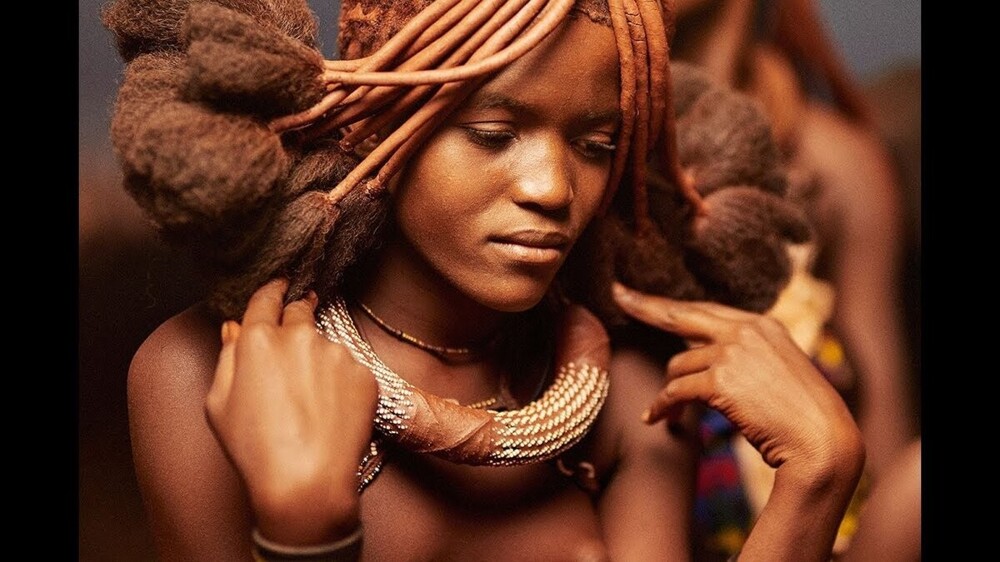
But how do the Himba manage to maintain such beauty and especially maintain clear skin with a beautiful copper color? It turned out that Himba hygiene is very unusual.
Women apply a special otjize paste to their skin, consisting of ocher pigment and milk fat. This mixture perfectly cleanses the skin and protects it from exposure to sunlight, insidious insect bites and dry wind. For a pleasant aroma, girls add resin from the omuzumba bush to otjize. 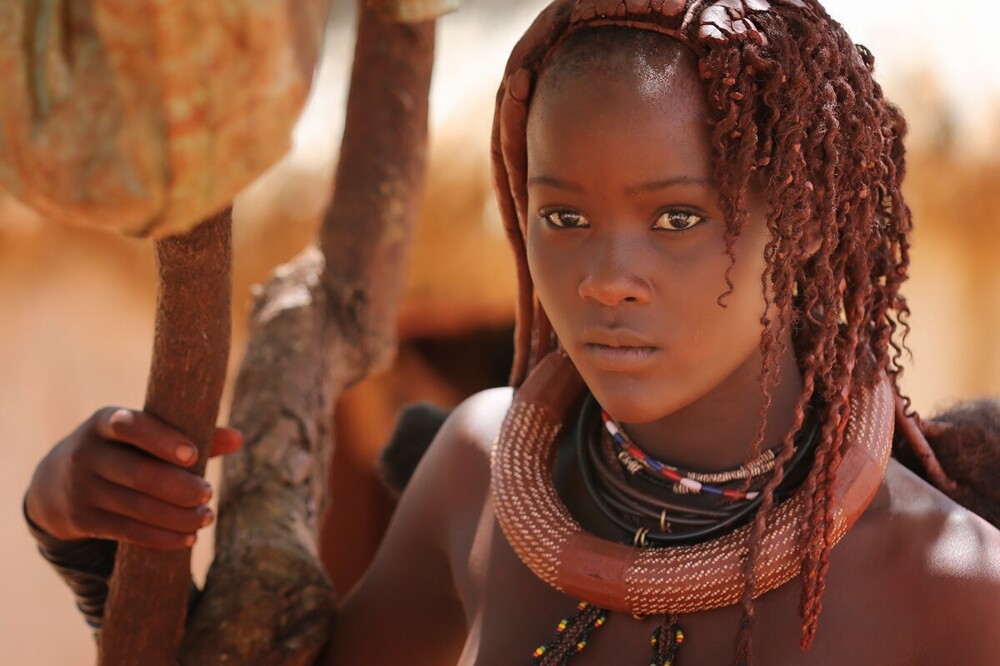
Himba girls never wash themselves and this tradition has been preserved for many centuries due to the characteristics of their habitat. Water in those parts is a rather rare resource, literally worth its weight in gold, and the main thing is that there is enough for drinking and cooking, and hygiene procedures are definitely not in the first place in the Himba’s priority. But those researchers and travelers who managed to visit the Himba never said that their girls smelled bad.
By the way, they used to get water by digging holes in the ground, but the authorities todayThey dig wells for the tribe. The Himba, by the way, do not really trust this water and only feed their cattle with it. Under such rather difficult living conditions, members of the tribe live on average up to 70 years, and some can live up to a hundred. 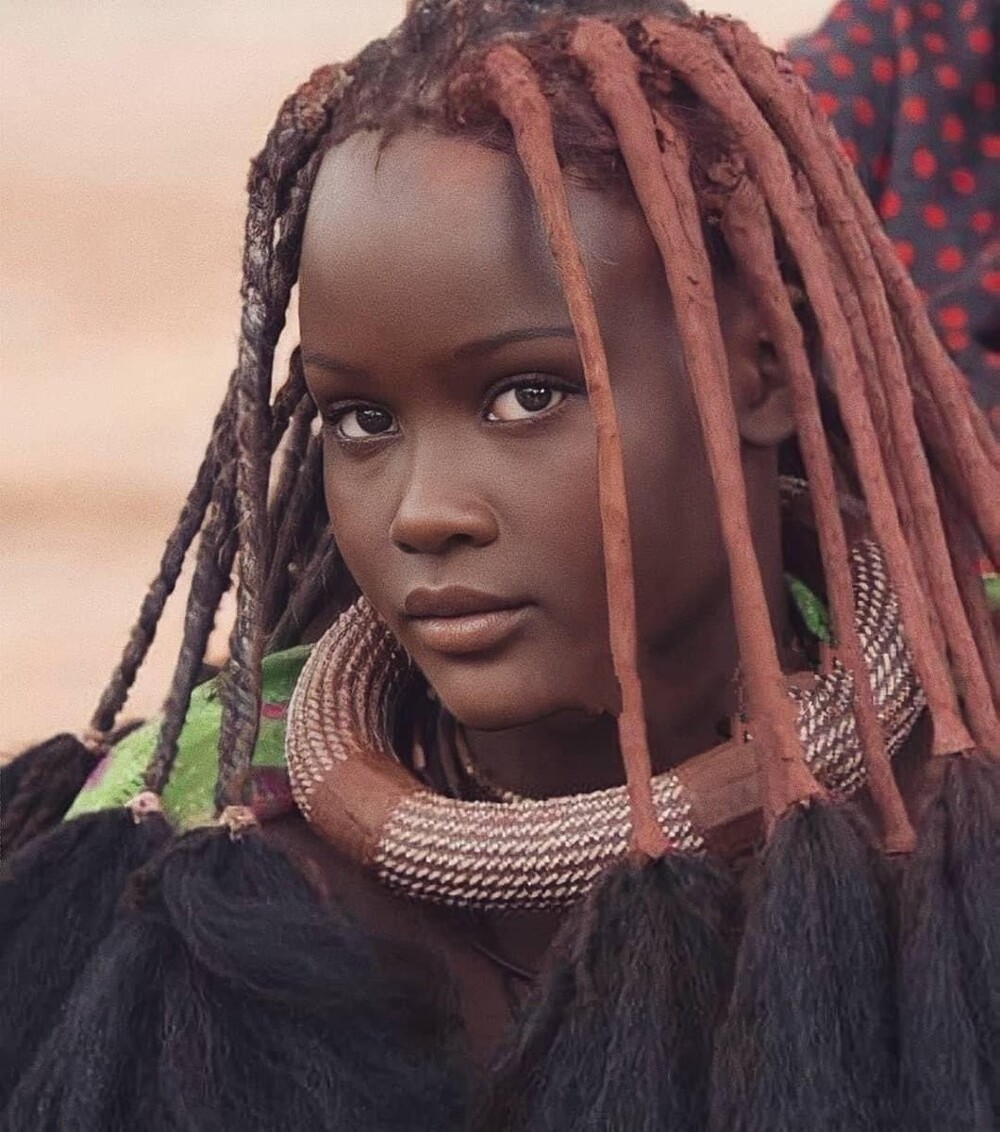
Instead of classic baths, the Himba take smoke baths: they collect commiphora leaves, make a small fireplace out of them, and when smoke appears, they wrap themselves in a special cloth and stand so that the smoke covers them completely. It turns out to be a kind of smoke bag in which the pores of the skin open, sweating increases and the skin is cleansed of dirt accumulated during the day.
The body goes through not only cleansing, but also some semblance of disinfection. As a bonus, a very pleasant aroma emanates from the body.
